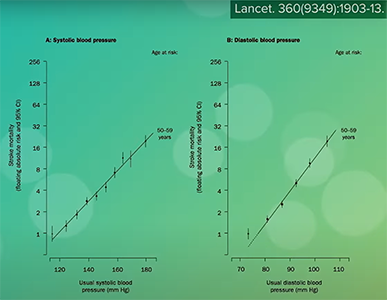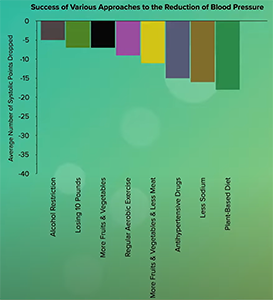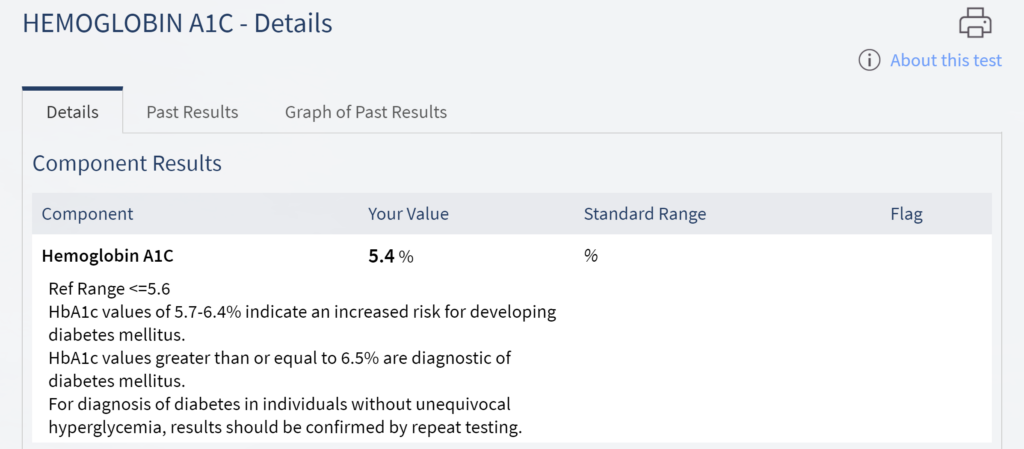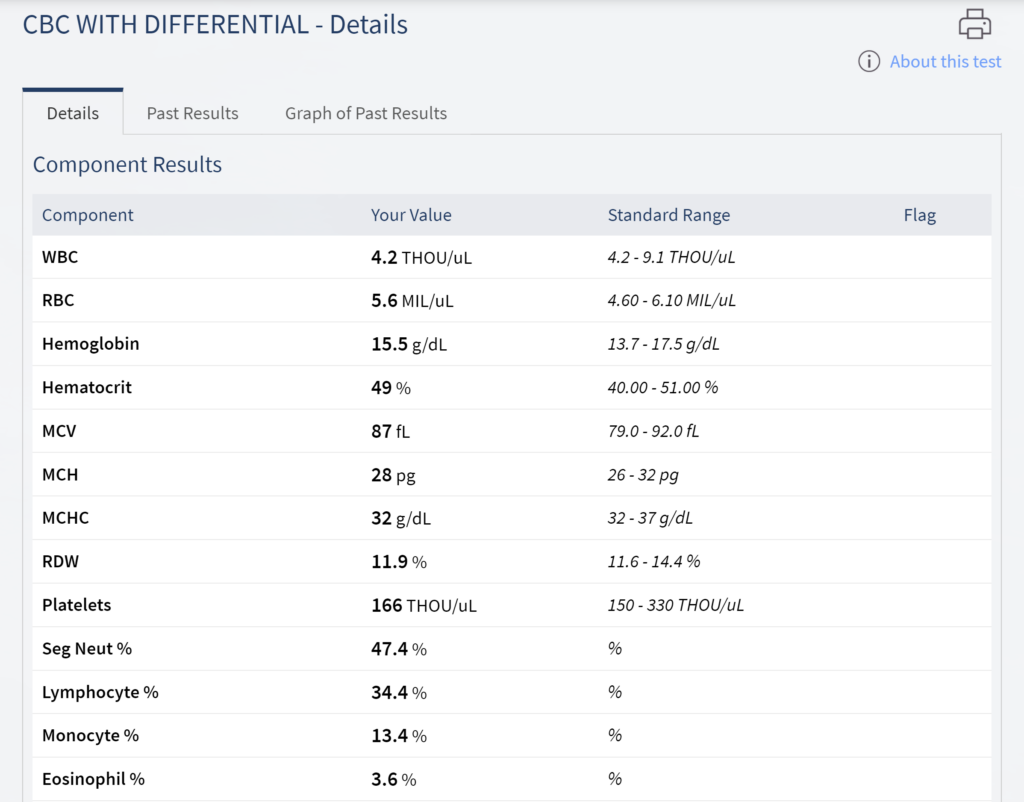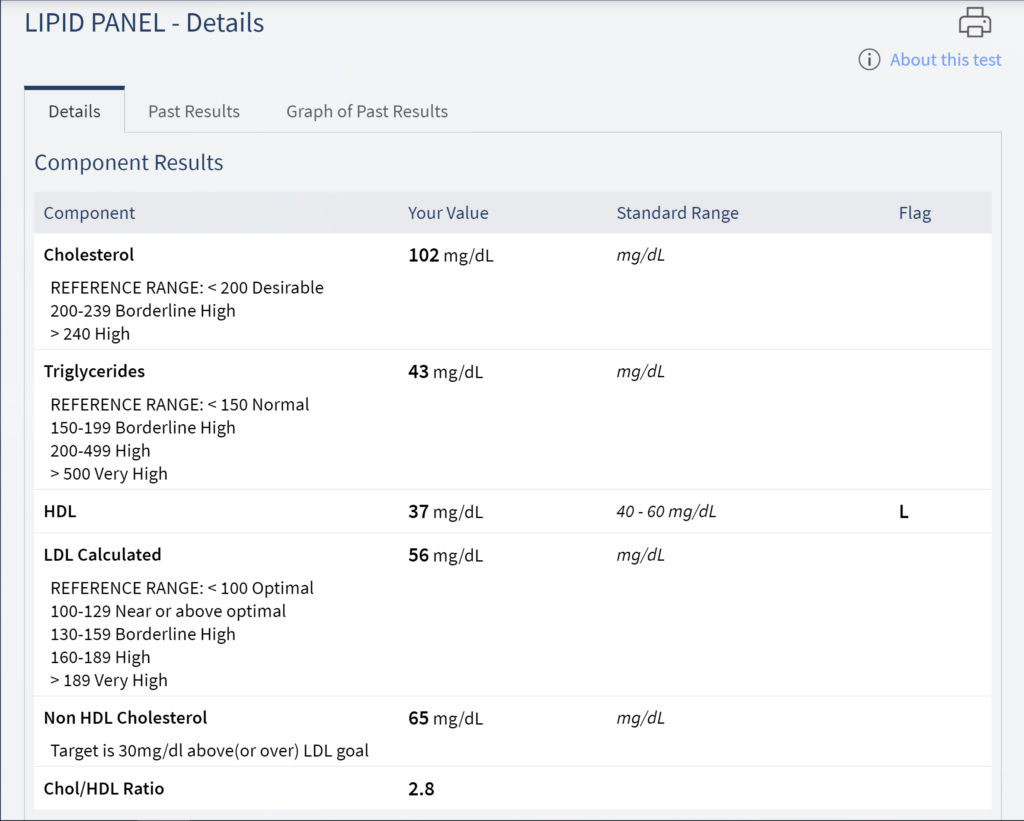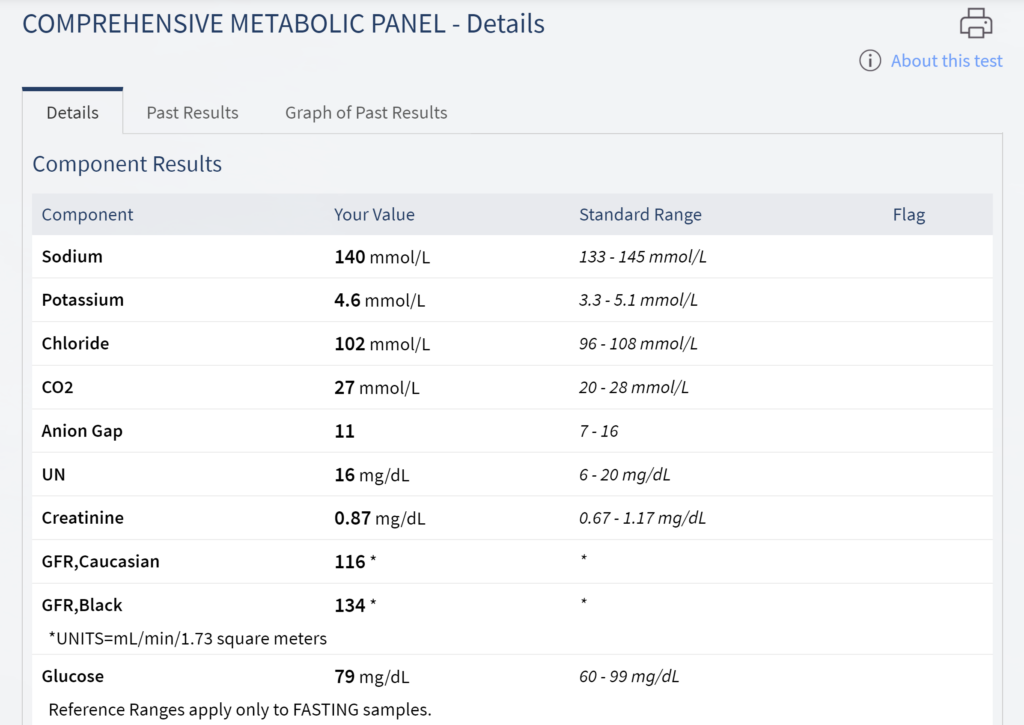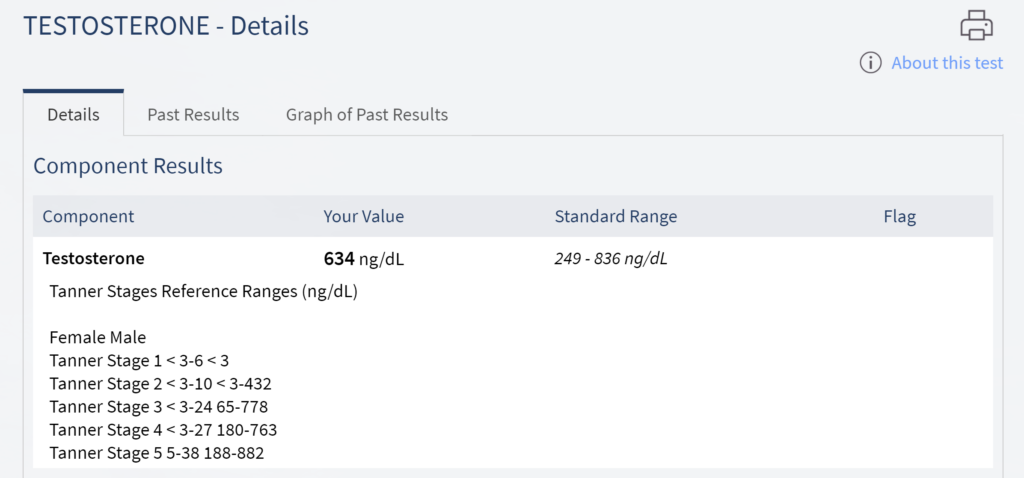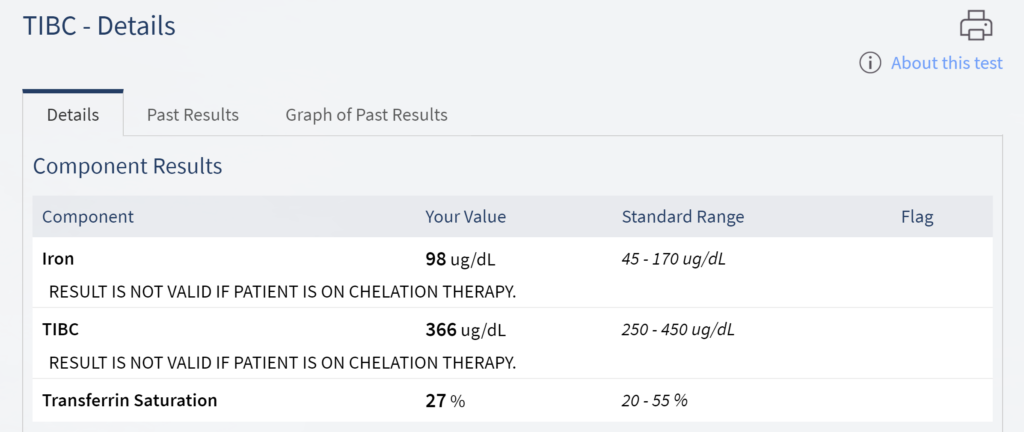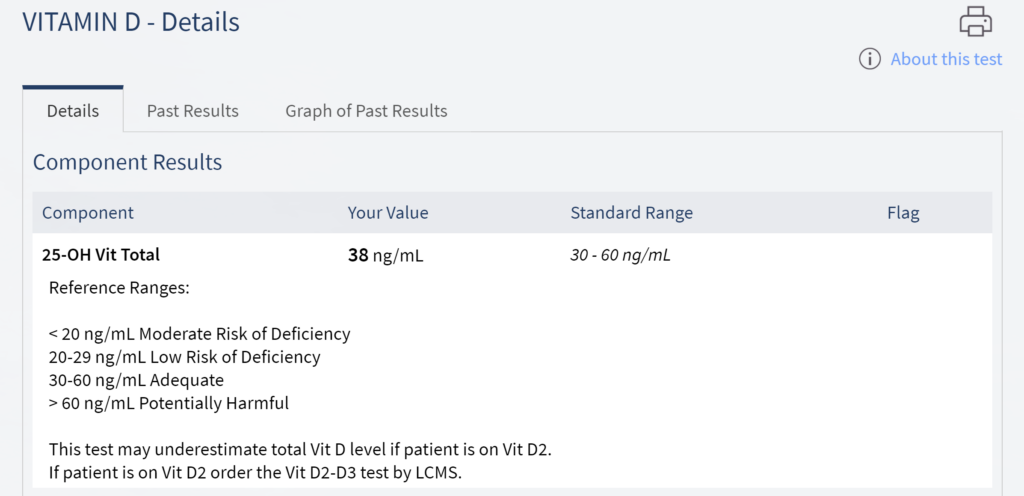Not only am I interested in extending my lifespan, or living more years of life, but I’m especially interested in increasing and extending my healthspan, or how well I live those years. Obviously, I want to be free of disease but also free of disability, and cognitive decline, and physical decline as much as possible. All while maintaining a healthy mental state of peace and happiness. And to ensure I’m enroute to delivering on these goals, it can be useful to benchmark my progress. Despite thinking I’m living an extremely healthy lifestyle with my whole foods plant-based diet, religious sleep schedule, and consistent fitness program, how healthy am I? What biomarkers, like blood pressure or blood sugar are most important? And even if you happen to know the correct biomarkers for health, what are the optimal values? I thought 120/80 blood pressure was optimal but from all the research I could find, it wasn’t. And the American Heart Association’s website or my doctor never informed me of this. It’s why I dove into the research and am detailing the optimal biomarkers for health. Let’s get into it!
1. Blood Pressure
In a study detailing the Top Risk Factors for Death in 2017, high blood pressure was the number two risk factor by far, just behind a poor diet [1]. And in a 2016 study focusing not only on death, but disability-adjusted life-years, or healthspan in a way, high blood pressure came in sixth [2]. It seems that this common test is a great indicator of health as it has a direct effect on your risk for heart disease, stroke, dementia, and many other factors. It’s what I’ve found to be the top biomarker for health. But, if you listen to most doctors or look at the chart on the American Heart Association’s website, you’d be fooled into thinking that a blood pressure of 120/80 is optimal [3].
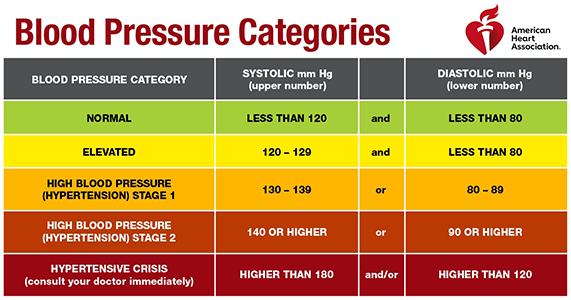
But after researching the risk of mortality based on blood pressure, most studies indicate a lower risk of death at 110/70 [4]. After all, this is where our blood pressure usually sits at in our younger years of life before poor lifestyle factors have compounded over the years. And based on this information, that’s the blood pressure I think we should all be shooting for. Ideally, you can lower your blood pressure naturally without medications. The top way of doing this by far is with a whole foods plant-based diet that avoids added salt intake. But many other lifestyle methods can contribute too like alcohol restriction, decreasing body fat, exercising, and optimizing sleep quality and quantity [5].
With that being said, I used my personal Omron blood pressure monitor to determine my reading. For accurate results, my Omron does three blood pressure measurements 30 seconds apart and averages the readings for its result. I decided to perform this test six times over three days following the Mayo Clinic’s guidelines for accuracy [6]. One test in the morning an hour after waking up but before eating or exercising. And another in the evening an hour before bed, not directly after eating or exercising again. In total, my 6 measurement sessions of 18 total readings gave me an average of 114/74. Pretty good! But not optimal. So, I think eating more home cooked meals will be the key for me in lowering my reading to optimal levels. I do eat out a few times a week and we all know restaurants have dump trucks piling salt onto their meals. But in time, I think I can get to optimal levels! Stay tuned.
2. Blood Sugar
Next on the research list of top risk factors for death and disability-adjusted life-years came high blood sugar. As you consume food, your digestion process turns that food into sugar that’s released into the blood stream. And with the use of insulin, that sugar is absorbed by cells for energy. But if you’re not producing enough insulin, or you’re not using the insulin effectively, your blood sugar can remain high and lead to diabetes [7]. Again, the top risk factor for high blood sugar is diet but other lifestyle factors like fitness and sleep play a role too. A whole foods plant-based diet has been shown to not only prevent but reverse many Type 2 diabetes cases [8]. So, again I decided to have two tests performed to check on my blood sugar levels.
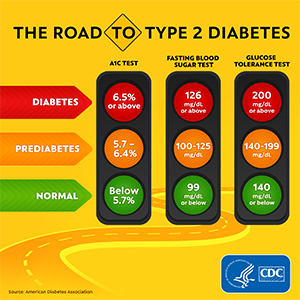
First, I asked my doctor to order a Comprehensive Metabolic Panel, which is a blood test that examines many things, but usually includes a test for Glucose Fasting. This test should be performed in the morning after an overnight fast and will determine your current blood sugar level [9]. The standard range is between 60-99 mg/dL but optimal results tend to be between 70 and 90 mg/dL. My result came back at 79 mg/dL which is right within that range.
Second, I asked my doctor to order a Hemoglobin A1C test. This test doesn’t determine your current blood sugar but takes a longer-term view of your blood sugar over the past two to three months and I was super curious about this [9]. The optimal range is less than or equal to 5.6% and my result came back at 5.4%. Perfect. As you can see from the table below, as this number rises, so does your risk for diabetes. From the blood sugar standpoint, I faired really well.
3. Cholesterol
Next on the research list, ignoring BMI and body composition which I’m planning to do an entire post on, is high LDL and total cholesterol. While cholesterol is needed for cell function, too much can increase your risk for fatty deposits in your blood vessels. This can make it more difficult for blood to flow throughout your body and increases your risk for many issues like heart disease and stroke [10]. I’ll repeat this again if you haven’t picked up the gist yet, a whole foods plant-based diet is the best way to lower these cholesterol levels with other lifestyle factors like fitness and sleep helping too [11]. To test my levels, I asked my doctor to order a lipid panel that’ll show various cholesterol measurements. The primary concern is high LDL. Although many doctors and health sites list anything under 100 mg/dL as normal, studies show the lower the number the better with optimal results being below 70 mg/dL [12]. Mine came back at a 56 mg/dL which I’m pretty happy about.
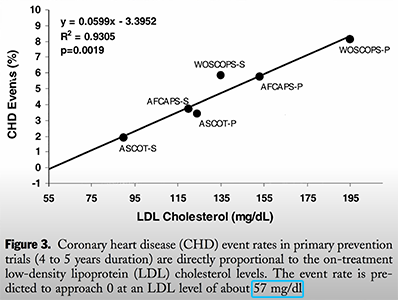
The next concern is a high total cholesterol. With my low LDL, I knew I wouldn’t have much to worry about here. My total cholesterol came in at 102 mg/dL. Although the normal listed range is below 200 mg/dL, most studies indicate optimal being below 150 mg/dL [12]. From the cholesterol standpoint, I faired really well too!
4. Vitamin B12, Vitamin D, and Omega-3’s
By far, excluding BMI and body composition, I found blood pressure, blood sugar, and cholesterol to be the three key factors to manage when looking to optimize both lifespan and healthspan. I also found that the best way to accomplish all three of these goals is to consume a whole foods plant-based diet. But this diet isn’t flawless. If you’re completely vegan, then you’ll be Vitamin B12 deficient because B12 is only found in animal products [13]. Also, depending on your sun exposure, anyone is subject to being deficient in Vitamin D [14]. And lastly, there is some concern for Omega-3 consumption because EPA and DHA are found primarily in seafood [15]. It’s why I’ve recommended supplementing these three nutrients in my Only Supplements That Matter post because not only are they difficult or impossible to attain when eating a whole foods plant-based diet, but most people are lacking these nutrients anyways no matter their diet. So, with this in mind, I decided to test my levels of B12 and D. I would’ve tested my Omega-3 levels as well, but my doctor wasn’t permitted to order these tests and insurance wouldn’t have covered it either. So, let’s quickly cover these.
A Vitamin B12 test can determine how much B12 is circulating in your blood. This is a good start. The standard range is between 232 and 1,245 pg/mL but I’d be a little worried about being too far on the lower end of this range [13]. Mine result came back at 402 pg/mL which is well within the range.
The problem with the B12 test though, is that just because there’s B12 circulating in your blood doesn’t mean your cells are utilizing it properly. Therefore, B12 isn’t the best test to determine your functional B12 status. A better method of determining your B12 needs is to test your Homocysteine levels. Without a proper Vitamin B12 supply, and folate which is rarely an issue with a whole foods plant-based diet, your Homocysteine levels can rise and significantly increase your risk for stroke. Although the standard range is between 0 and 15 umol/L, Dr. Greger recommends anything below 10 umol/L being optimal [13]. My test came back at 9 umol/L. Therefore, my Vitamin B12 supplementation appears to be working as expected even though I forget to take it a couple times per week.
And next, Vitamin D is attained primarily from sun exposure, and is utilized for many things in the body like bone health. While the standard range is between 30 – 60 ng/mL, I found even better health outcomes with D levels being between 45-60 ng/mL [14]. My result came back at 38 ng/mL which is pretty good but not optimal. I’m assuming that if I took my supplements more consistently, my D levels would be in the optimal range so that’s something I need to focus on.
Other Notes
For anyone who’s interested, I’ll just throw up some screenshots of the other tests I had performed that all came back healthy. I had tests ordered for my testosterone, TSH, folate, ferritin, TIBC, and Complete Blood Counts. I was interested in testing my levels of inflammation with an ESR or C-Reactive Protein test, but these aren’t that accurate at determining chronic inflammation levels and can be influenced easily by acute issues like stubbing your toe on the way to the exam. So, just in case you’re interested in getting these tests too, here is the complete list of tests my doctor ordered plus the Omega-3 index I wish I’d gotten.
Final Thoughts
When it comes to optimizing lifespan and healthspan, it can be useful to benchmark your progress. Not only do I want to live a disease-free life, but I also want to enjoy all the years I’m alive with optimal physical, cognitive, and mental health too. In my benchmarking journey, I found blood pressure, blood sugar, and cholesterol to be the three main risk factors to manage. And managing these is most effective while on a whole foods plant-based diet followed by everything else I discuss on this channel like alcohol cessation, high quality sleep, physical activity, and stress management. But this whole foods plant-based diet isn’t perfect and why I’m also sure to check on my Vitamin B12, Vitamin D, and Omega-3 levels every so often. But with consistent supplementation, these risks shouldn’t be an issue either. And by optimizing all these factors, you should be able to hit the evidence-based optimal targets rather than the advertised “normal” targets. Because normally, things don’t go that well. But optimally, is your path to healthier and happier.
Want a weekly update on the 3 most important things I’ve read, watched, and listened to within the past week?
Watch a YouTube Video Summarizing the Post

Hey, I am Brandon Zerbe
Welcome to myHealthSciences! My goal has always been to increase quality-of-life with healthy habits that are sustainable, efficient, and effective. I do this by covering topics like Fitness, Nutrition, Sleep, Cognition, Finance and Minimalism. You can read more about me here.
Sources:
- [1] Health Effects of Dietary Risks in 195 Countries, 1990–2017: A Systematic Analysis for the Global Burden of Disease Study 2017
- [2] The State of US Health, 1990-2016: Burden of Diseases, Injuries, and Risk Factors Among US States
- [3] Understanding Blood Pressure Readings
- [4] What the New Blood Pressure Range Guidelines Mean
- [5] How to Lower Blood Pressure Naturally with Lifestyle Changes
- [6] Get the Most Out of Home Blood Pressure Monitoring
- [7] How Does Eating Affect Your Blood Sugar?
- [8] A Plant-Based Diet for the Prevention and Treatment of Type 2 Diabetes
- [9] Diabetes Tests
- [10] High Cholesterol
- [11] Lowering Cholesterol with a Plant-Based Diet
- [12] Optimal Cholesterol Level
- [13] How to Test for Functional Vitamin B12 Deficiency
- [14] The Optimal Dose of Vitamin D Based on Natural Levels
- [15] Should Vegans Take DHA to Preserve Brain Function?
- Supplemental: How Much Do Doctors Actually Know About Nutrition?

